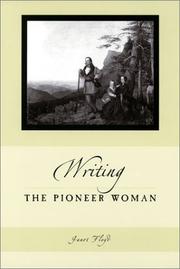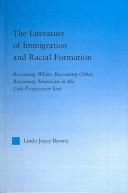| Listing 1 - 10 of 27 | << page >> |
Sort by
|
Book
ISBN: 0924119233 Year: 1999 Publisher: Madison University of Wisconsin. Max Kade institute for German-American studies
Abstract | Keywords | Export | Availability | Bookmark
 Loading...
Loading...Choose an application
- Reference Manager
- EndNote
- RefWorks (Direct export to RefWorks)
Forty-Eighters (American immigrants) --- German Americans --- History --- Schurz, Carl, --- Watertown (Wis.) --- History.

ISBN: 1880788101 9781880788103 Year: 1998 Publisher: Indianapolis Indiana university. Max Kade German-American center
Abstract | Keywords | Export | Availability | Bookmark
 Loading...
Loading...Choose an application
- Reference Manager
- EndNote
- RefWorks (Direct export to RefWorks)
Forty-Eighters (American immigrants) --- German Americans --- Political refugees --- History --- Germany --- Refugees.
Book
ISBN: 0813559685 0813559669 0813559677 Year: 2013 Publisher: Piscataway Rutgers University Press
Abstract | Keywords | Export | Availability | Bookmark
 Loading...
Loading...Choose an application
- Reference Manager
- EndNote
- RefWorks (Direct export to RefWorks)
During the Cold War, Ellis Island no longer served as the largest port of entry for immigrants, but as a prison for holding aliens the state wished to deport. The government criminalized those it considered un-assimilable (from left-wing intellectuals and black radicals to racialized migrant laborers) through the denial, annulment, and curtailment of citizenship and its rights. The island, ceasing to represent the iconic ideal of immigrant America, came to symbolize its very limits. Unbecoming Americans sets out to recover the shadow narratives of un-American writers forged out of the racial and political limits of citizenship. In this collection of Afro-Caribbean, Filipino, and African American writers—C.L.R. James, Carlos Bulosan, Claudia Jones, and Richard Wright—Joseph Keith examines how they used their exclusion from the nation, a condition he terms “alienage,” as a standpoint from which to imagine alternative global solidarities and to interrogate the contradictions of the United States as a country, a republic, and an empire at the dawn of the "American Century.” Building on scholarship linking the forms of the novel to those of the nation, the book explores how these writers employed alternative aesthetic forms, including memoir, cultural criticism, and travel narrative, to contest prevailing notions of race, nation, and citizenship. Ultimately they produced a vital counter-discourse of freedom in opposition to the new formations of empire emerging in the years after World War II, forms that continue to shape our world today.
Book
ISBN: 1282922459 9786612922459 0810877678 9780810877672 0810860562 9780810860568 9780810860568 9781282922457 6612922451 Year: 2010 Publisher: Lanham, MD : Scarecrow Press,
Abstract | Keywords | Export | Availability | Bookmark
 Loading...
Loading...Choose an application
- Reference Manager
- EndNote
- RefWorks (Direct export to RefWorks)
This volume examines novels, short stories, and memoirs that portray the various aspects of the immigrant experience. It also explores how such works depict the causes of immigration, the immigrants' journey, their arrival, the process of adjustment, and the effect of immigration on family structures and ties.
Book
ISBN: 0292726406 0292729960 0292743947 Year: 2011 Publisher: Austin : University of Texas Press,
Abstract | Keywords | Export | Availability | Bookmark
 Loading...
Loading...Choose an application
- Reference Manager
- EndNote
- RefWorks (Direct export to RefWorks)
Immigration has been one of the basic realities of life for Latino communities in the United States since the nineteenth century. It is one of the most important themes in Hispanic literature, and it has given rise to a specific type of literature while also defining what it means to be Hispanic in the United States. Immigrant literature uses predominantly the language of the homeland; it serves a population united by that language, irrespective of national origin; and it solidifies and furthers national identity. The literature of immigration reflects the reasons for emigrating, records—both orally and in writing—the trials and tribulations of immigration, and facilitates adjustment to the new society while maintaining links with the old society. Based on an archive assembled over the past two decades by author Nicolás Kanellos's Recovering the U. S. Hispanic Literary Heritage project, this comprehensive study is one of the first to define this body of work. Written and recorded by people from Mexico, Cuba, Puerto Rico, the Caribbean, and Central and South America, the texts presented here reflect the dualities that have characterized the Hispanic immigrant experience in the United States since the mid-nineteenth century, set always against a longing for homeland.
Book
ISBN: 128247300X 9786612473005 1584658797 1584658053 9781584658054 9781584658467 1584658460 9781584658795 9781584658054 Year: 2009 Publisher: Hanover, NH : Dartmouth College Press,
Abstract | Keywords | Export | Availability | Bookmark
 Loading...
Loading...Choose an application
- Reference Manager
- EndNote
- RefWorks (Direct export to RefWorks)
A unique comparative study of immigrant and diaspora literatures in America
National characteristics, American, in literature. --- Immigrants in literature. --- Emigration and immigration in literature. --- Place (Philosophy) in literature. --- Immigrants' writings, American --- American fiction --- American immigrants' writings --- American literature --- History and criticism.
Book
ISBN: 9780520963825 9780520289024 0520963822 0520289021 Year: 2017 Publisher: Oakland, California
Abstract | Keywords | Export | Availability | Bookmark
 Loading...
Loading...Choose an application
- Reference Manager
- EndNote
- RefWorks (Direct export to RefWorks)
"This comprehensive text provides a detailed narrative history of each of the nations of Latin America, from Chile and Argentina in the South to Mexico and Cuba in the north. It begins with the Wars of Independence in the early nineteenth century and stretches to the democratic turn in the twenty-first. It interprets major themes, such as the age of caudillos in the nineteenth century, populism in the twentieth century, and globalization in the twenty-first century. These themes, along with others such as ethnic strife, social revolutions, and militarism, transcend borders and show the unity of the Latin America experience, even as the text draws out the diversity that marks the region's geography, peoples, and cultures."
Latin America --- History --- Politics and government --- anthropology. --- class. --- cultural anthropology. --- ethnography. --- gender. --- historical context. --- historical reference. --- latinx studies. --- mexican american immigrants. --- political activists. --- race. --- scholars. --- social activists. --- socioeconomic position. --- sociology.
Book
ISBN: 0520969715 9780520969711 9780520297326 0520297326 9780520297333 0520297334 Year: 2019 Publisher: Oakland, California
Abstract | Keywords | Export | Availability | Bookmark
 Loading...
Loading...Choose an application
- Reference Manager
- EndNote
- RefWorks (Direct export to RefWorks)
What happens to migrants after they are deported from the United States and dropped off at the Mexican border, often hundreds if not thousands of miles from their hometowns? In this eye-opening work, Jeremy Slack foregrounds the voices and experiences of Mexican deportees, who frequently become targets of extreme forms of violence, including migrant massacres, upon their return to Mexico. Navigating the complex world of the border, Slack investigates how the high-profile drug war has led to more than two hundred thousand deaths in Mexico, and how many deportees, stranded and vulnerable in unfamiliar cities, have become fodder for drug cartel struggles. Like no other book before it, Deported to Death reshapes debates on the long-term impact of border enforcement and illustrates the complex decisions migrants must make about whether to attempt the return to an often dangerous life in Mexico or face increasingly harsh punishment in the United States.
Immigrants --- Violence --- Immigration enforcement --- Deportation --- Violence against --- border between the united states and mexico. --- border crossing. --- dangers of border crossing. --- deportation. --- deported immigrants. --- immigration studies. --- immigration. --- mexican american immigrants.

ISBN: 0826262651 9780826262653 0826213812 9780826213815 1417528346 9781417528349 Year: 2002 Publisher: Columbia University of Missouri Press
Abstract | Keywords | Export | Availability | Bookmark
 Loading...
Loading...Choose an application
- Reference Manager
- EndNote
- RefWorks (Direct export to RefWorks)
American prose literature --- Frontier and pioneer life --- Women immigrants --- Women pioneers --- Immigrants' writings, American --- Women and literature --- Autobiography --- Autobiography of women --- Women's autobiography --- Literature --- American immigrants' writings --- American literature --- Frontier women --- Pioneer women --- Pioneers --- Immigrant women --- Immigrants --- Women authors --- History and criticism. --- Historiography. --- Biography --- History. --- Women authors.

ISBN: 1135932425 1280178450 0203327721 9780203327722 9780415949316 0415949319 9786610178452 6610178453 0415949319 9781135932428 9781135932374 1135932379 9781135932411 1135932417 9780415649759 0415649757 9781280178450 Year: 2004 Publisher: New York Routledge
Abstract | Keywords | Export | Availability | Bookmark
 Loading...
Loading...Choose an application
- Reference Manager
- EndNote
- RefWorks (Direct export to RefWorks)
This work examines early twentieth-century literature about women immigrants in order to reveal the differing ways that American racial categories and identities, particularly that of whiteness, were textually and socially constructed at the beginning of the twentieth century.
American literature --- Emigration and immigration in literature. --- Women and literature --- Immigrants' writings, American --- Difference (Psychology) in literature. --- Passing (Identity) in literature. --- Immigrants in literature. --- Ethnicity in literature. --- Whites in literature. --- Race in literature. --- American immigrants' writings --- English literature --- Agrarians (Group of writers) --- History and criticism. --- History --- Women authors --- Whites in literature --- White people in literature.
| Listing 1 - 10 of 27 | << page >> |
Sort by
|

 Search
Search Feedback
Feedback About UniCat
About UniCat  Help
Help News
News